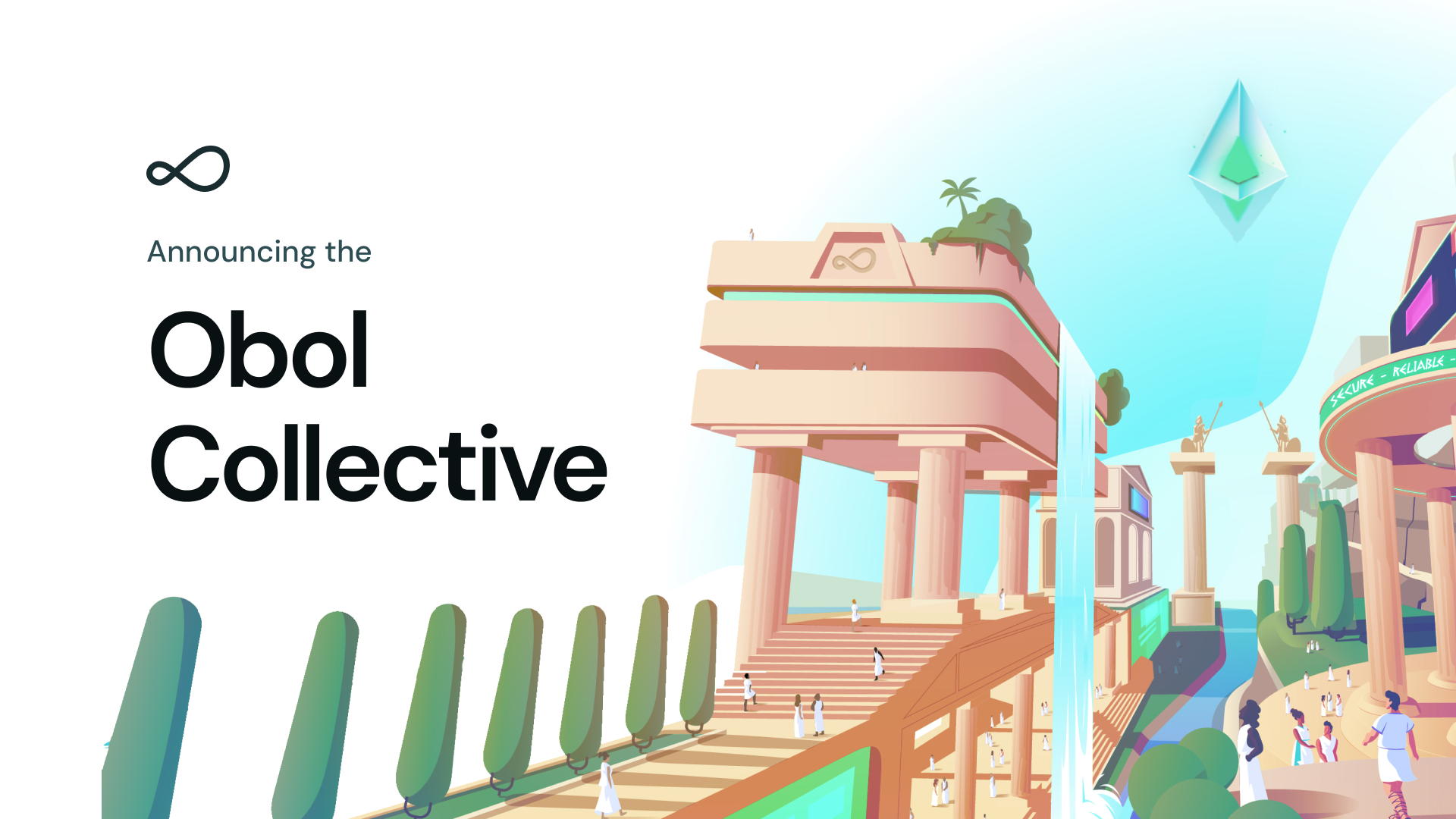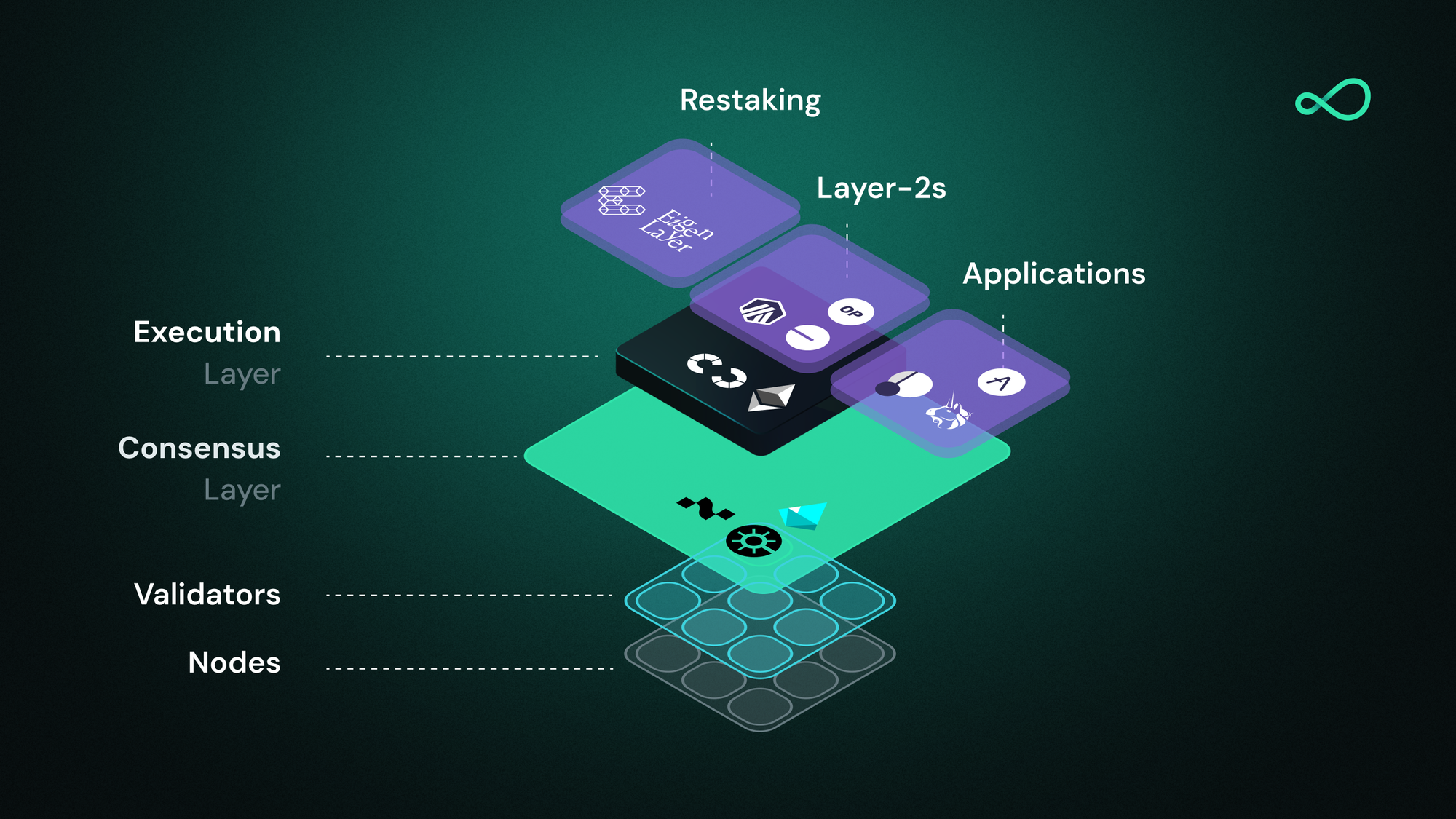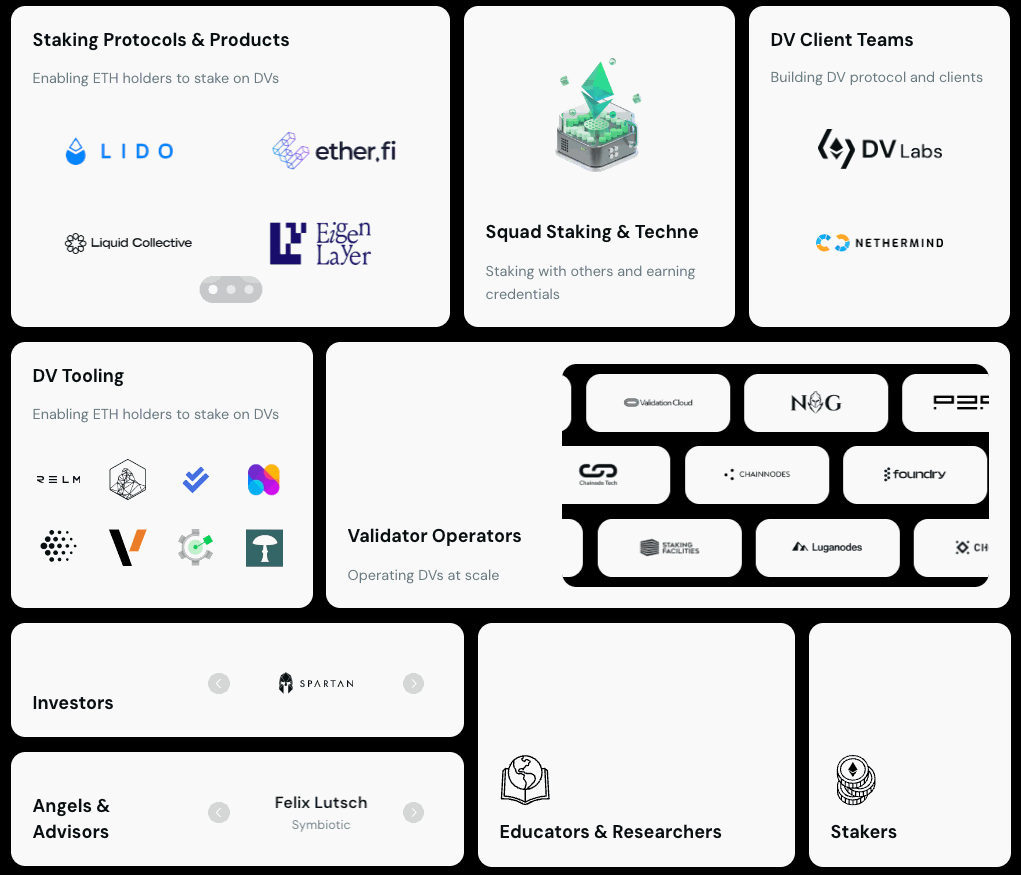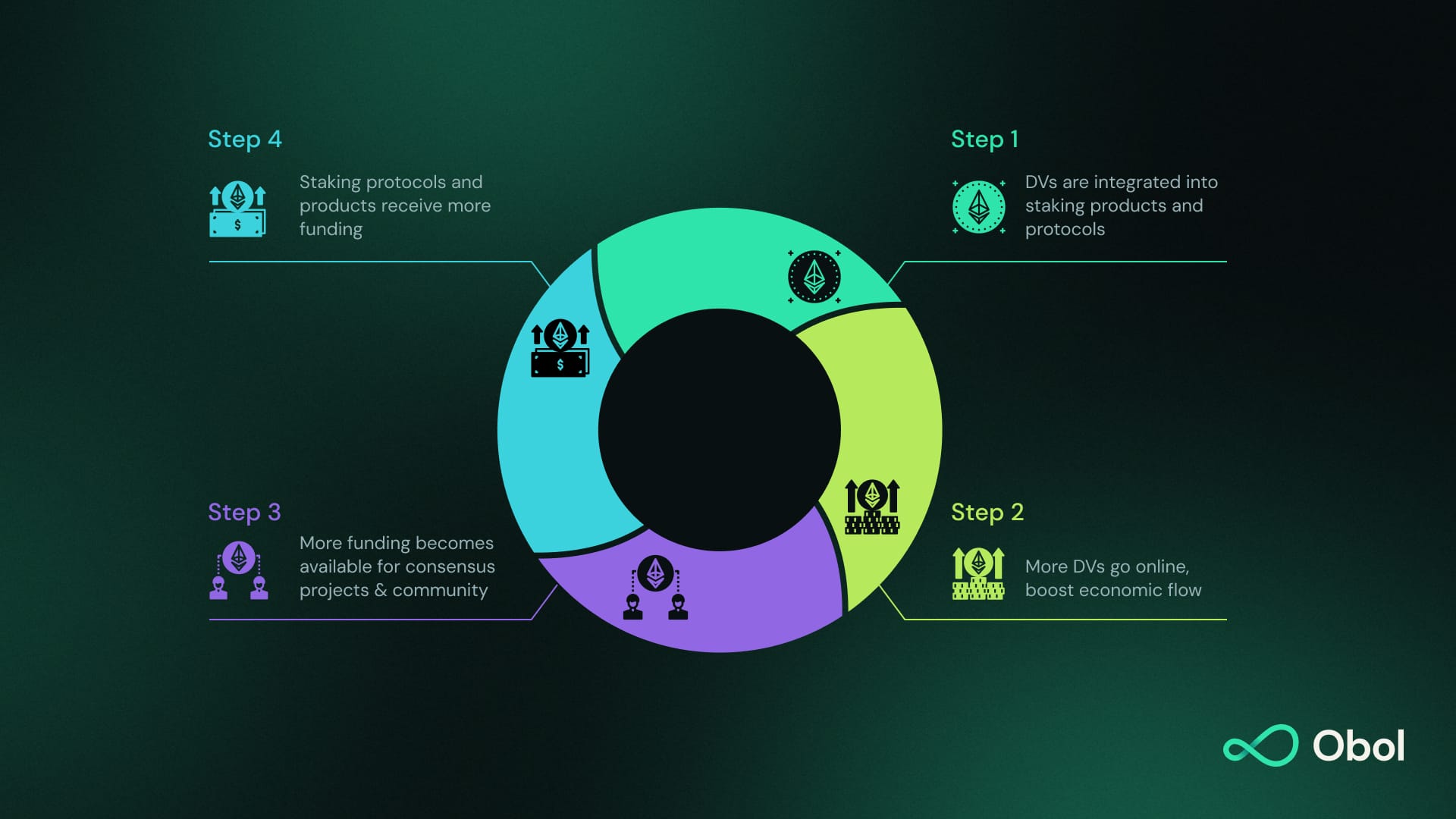Announcing the Obol Collective

Today marks the launch of the Obol Collective: a community dedicated to scaling Ethereum by strengthening the security, resiliency, and decentralisation of the consensus layer through the development and deployment of distributed validators. The Collective is fueled by Obol’s economic model, which directs 1% of staking rewards from DVs to ecosystem projects via retroactive funding - a positive flywheel to accelerate adoption of DVs and scale the consensus layer. Protocols which directly enable stake on Obol DVs, such as Lido and EtherFi, play a critical role in sustaining the Obol Collective.
The list of Obol Collective participants includes 50+ staking protocols, client teams, software tools, education & community projects, professional node operators, home operators, and stakers. The full list of participants is available at Obol.org/governance, and includes names like EigenLayer, Lido, EtherFi, Figment, Bitcoin Suisse, Stakewise, Nethermind, Blockdaemon, Chorus One, DappNode, ETH Staker, and many more.
The Consensus Layer is Ethereum’s Foundation
Without a secure, resilient, and decentralised consensus layer, it wouldn’t be possible for $115b of staked ETH to secure a $425b ETH token, an additional $250b of ERC-20 tokens, $40b in Layer 2s, $18b in restaking, and a host of other on-chain activity. Without solid consensus, building on Ethereum would be like building a skyscraper on a wooden foundation. Consensus can not be taken for granted.

Overall, Ethereum is on the right path, as evidenced by the recent ETF approval by the SEC, a significant step in growing mainstream adoption and confidence in Ethereum. However, if Ethereum is to scale this trust and confidence to its next million users, consensus and validator infrastructure must progress also.
There’s still plenty of work to be done: last year, client bugs caused swaths of validators to go offline and even caused Ethereum to fail to finalise blocks. With solo staking only representing 6% of stake, large-scale infrastructure providers have faced significant challenges, with multiple at-scale slashing events occurring last year both inside and outside Lido’s curated node operator set.
A Collective for Ethereum Consensus
For all the importance that consensus holds, it's largely lacking in organised support, innovation, and funding, beyond the scope of consensus client teams and core developers. Today, the security and decentralisation of consensus depend primarily on social pressure and mutual trust that staking protocols and operators will do what’s best for Ethereum: this is the “won’t be evil” phase. At Obol, we’re making distributed validators (DVs) readily available, offering not only protection against client issues and key mismanagement, but also byzantine fault tolerance: ushering in the “can’t be evil” phase. The transition of the Ethereum community to DVs will enable a new trust paradigm, finally allowing the validator to become the most credible cash flow stream in the world.
However, ecosystem-wide involvement will be needed to ensure the adoption of DVs and the success of Ethereum's long-term security, resiliency, and decentralisation. We need technology partners, staking protocols, node operators, researchers, educators, ambassadors, community contributors, and stakers to join this movement to strengthen Ethereum.
This is why we’ve launched the Obol Collective: a group of organisations and individuals committed to strengthening and sustaining Ethereum’s consensus layer.
It Takes a Village
Unified behind a common cause, collectives deliver strong network effects that drive innovation, focus, and exponential value. Collectives like the Optimism Collective, Arbitrum Foundation, and others have built vibrant ecosystems that scale Ethereum’s Layer-2 ecosystems and bring innovations to the application layer.
It’s time to build a collective for the Ethereum consensus layer.
After three years of building, testing, and developing relationships around DVs, it’s time to formalise our community under one umbrella. The full list of participants can be found on our website at obol.org/governance.

This is a broad range of teams and individuals supporting the DV ecosystem, researching and developing cryptography and software, building tooling for DV launchers, testing DVs, staking on DVs, and integrating DVs into their products. But they are just the beginning - the Obol Collective is an inherently inclusive organisation and will expand over time.
Funding from DVs, for Ecosystem Projects
One of the pieces that fuel support for Ethereum consensus is the Collective's retroactive fund (RAF), called “1% for Decentralisation”, which was announced in May 2024. 1% of the staking rewards produced by Obol distributed validators go toward the RAF, to be redirected back to Ethereum projects working to strengthen and promote the decentralisation of Ethereum consensus.
This creates a positive flywheel: more projects build on DVs, boosting the adoption of DVs, unlocking more funding to projects, and so on. This flywheel will drive perpetual innovation, support, and value creation for Ethereum consensus.

With $1.5B of stake being deployed to Obol DVs by Lido and EtherFi, two large initial sources of funding for the Obol Collective are secured. However with every mainnet DV contributing 1% of staking rewards toward the Collective’s RAF, the Obol Collective will have a wide diversity of funding sources that develops over time.
The Obol Collective will govern the flow of funds from the retroactive funding model to the ecosystem projects. The distribution model will leverage EasyRPG, a public good built by Gitcoin on the back of Optimism’s Round 3. Initially, the beneficiary projects will be selected by the Obol Collective’s Senate, with governance decentralising over time.
Get Involved
The Obol Collective embraces inclusivity and network efforts to achieve a shared goal. Are you passionate about Ethereum’s consensus? No matter your role, you can help contribute to the Obol Collective. 🤝
If you are a staking protocol or node operator that wants to deploy DVs in your infrastructure, visit our new website at obol.org or connect with our partnerships team.
If you are a home operator or solo staker, visit our squad staking website or Techne Credential to learn how you can gain experience, stake ETH within a cluster, or even earn opportunities to join the operator set for staking protocols.
If you’re looking to support Ethereum decentralisation with your stake, start staking with a staking protocol that is already running DVs.
Get involved! For the benefit of the entire Ethereum ecosystem.